The arrest of Peru’s leftist President Pedro Castillo represents the latest and most serious twist in the country’s ongoing systemic political crisis, says Peruvian Ph.D. student and columnist Francesca Emanuele.
Greg Wilpert
Hi, I’m Greg Wilpert. In a whirlwind of events that shocked the South American nation of Peru, the country’s leftist president, Pedro Castillo, was impeached and arrested on Wednesday, December 7. Shortly before his arrest, Castillo was already facing a third impeachment proceeding, which he tried to preempt by dissolving Congress. However, lawmakers beat him to the punch when they quickly voted to remove him from office in a vote of 101 to 6 with ten abstentions.
Also, members of his own cabinet and other allies denounced his plan to dissolve Congress. Shortly after the impeachment, Peru’s Vice President, Dina Boluarte, was sworn into office. She’s from the same political party as Castillo, the Libre party, and briefly served in his cabinet.
Peru thus now has its 6th president in four years. Castillo himself was elected only a year and a half ago, narrowly defeating the far-right candidate Keiko Fujimori, the daughter of Peru’s former right-wing dictator Alberto Fujimori. What now for Peru?
Joining me to discuss this is Francesca Emanuele. She is a Peruvian Ph.D. student in anthropology at the American University and is also a columnist for the Peruvian news outlet Wayka. Thanks for joining me again, Francesca.
Francesca Emanuele
Thank you, Greg, for inviting me.
Greg Wilpert
So what do you think Castillo’s removal from office means for Peru?
Francesca Emanuele
So this situation in Peru is a tragedy. It’s a catastrophe for Peruvians, and it’s heartbreaking for me. Democracy hasn’t triumphed. Democracy has not triumphed, as most of the media outlets said today in their headlines in Peru, as many of the experts in Peru said today. Peru elected a leftist president, Pedro Castillo, a year and a half ago, a president that came from the working class. He was the first leftist president elected in our history since we became a republic 200 years ago. He offered a big transformation in our country. He offered to reduce poverty, to reduce inequality, to give voices to the populations that have been marginalized for decades in my country.
Now that president has been arrested and detained. We have a new president, Dina Boluarte, who we barely know. She was a vice president to Pedro Castillo. She ran with him on the same ticket under the same party. But the truth is that in the past year and a half, she was appointed as the Minister for Inclusion, a ministry that is very coveted because it has a big budget, but she didn’t do much with that big budget. She could have implemented several progressive policies, but what she did is she implemented the same policies that she inherited from previous administrations. In this year and a half, she hasn’t shown her voice, and now she is our president.
On the other hand, we have a Congress in Peru that has been trying to impeach Castillo since the first day he was elected, not even since the first day he became president. This Congress, which is captured by right-wing forces, by fascist groups, many of them related to the Fujimori Party, was celebrating yesterday when the impeachment against Castillo took place. I have in my head this image of them taking selfies, chanting, and saying that democracy had triumphed when they were the ones who were okay with bending democracy when Castillo was elected. They were pushing to flip the results of the elections to get rid of him. So that’s a tragedy because they are seeing this as a victory for them.
We have to see this situation from a big perspective. We in Peru are going through a huge, deep political crisis that has been going on for years. Just to give you an example, since 2018, when our former president elected, Pedro Pablo Kuczynski, resigned, we have had six different presidents in four years, six different presidents. Plus, we have several new parties that come and go in this Congress. Eight parties were elected to this Congress, and now we have 14 different political groups because many members of these different parties resigned from the party because they were not committed to these parties. Many of them were created by businessmen who were trying to get a party in Congress to protect their interests. So as I said before, we are going through a systemic political crisis, and this is not by any means a good moment for us Peruvians.
Greg Wilpert
Now, let’s look back a little bit. As I mentioned, Castillo himself was elected a year and a half ago and has now faced three impeachment efforts, the last one being successful. Now, what was going on during his presidency? Why was there so much turmoil? And was he able to achieve anything at all?
Francesca Emanuele
So I have to say that the situation in Peru is complex, and we shouldn’t see it from a perspective– reading it as if it was black and white. Castillo was a popular president. As I said, his platform was a leftist platform. But as soon as he became president, he decided not to fulfill those promises that people supported and voted for. He was surrounded by his friends from his hometown, many of them with no political background, who entered his cabinet or his group of advisors, thinking about what they could get in terms of money for themselves, in terms of public contracts. He was getting involved with dubious figures from traditional right-wing politics, even people who were connected with the Fujimori Party.
As you mentioned, the opposing candidate in the presidency, in elections for the presidency, was Kiko Fujimori. These figures were the ones who were trying to impeach him, even though he was getting close to them in many situations and he didn’t implement any of the progressive policies, he said he would do, not even the ones related to education. He was a teacher, and he said that one of his priorities was going to be education. In Peru, children are the least likely to come back to school in the whole region. He also said that he was going to pass a tax reform, and he didn’t even support that.
So there were, I think, people in Peru, and I include those people who feel betrayed by Castillo, and that’s a real shame not only for the country but also for the Left in Peru that rallied behind him and ended up feeling that he betrayed them too. Now they feel that there is little room for them to get together and organize again. Also, many groups in Peru, many people who are not connected to politics, are blaming the Left for this failure in terms of policy. So it’s a hard situation for the Left as well.
Greg Wilpert
Now, what about the process by which he was removed from office? I mean, many people on the Left particularly have been criticizing this basically as another coup. The question is, though, was Castillo allowed to dissolve Congress, which was the reason that was given for his impeachment, and then was the impeachment itself correct? What do you think?
Francesca Emanuele
According to the constitution of Peru that passed during the dictatorship of Alberto Fujimori— I think that is the source of many of our political problems that we have right now. According to that constitution, there is an article, 134 article, that says that the president can dissolve Congress if there are two no-confidence votes, and Castillo didn’t even have one. So dissolving Congress was an unlawful move. That’s why, very quickly, many members of his cabinet said that they were not supporting it. Very quickly, many figures from the Left or honest figures were condemned in it. So he didn’t have any political or legal basis for doing it. He probably had, he thought, many political bases to do it, but the truth is that his strategy was terrible. The army or the military were not on the streets. The army didn’t support him.
He ended up being arrested within two hours of announcing that he was going to dissolve Congress, and he was impeached within two hours. Now he’s still arrested, and he was able to reach the Mexican embassy where he was going to get political asylum.
Greg Wilpert
Now, what about the new president, Dina Boluarte? You said earlier that we know very little about her. What do we know?
Francesca Emanuele
Well, we know that she has not much political background. She ran for two positions as mayor in the district of Lima with the Perú Libre Party, the party of Pedro Castillo, and she didn’t win. So this is the first political position she has. She is a lawyer, and she was kicked out of her party this year in January, from the Perú Libre party. She is becoming a president with no party and no base. As I said before, we haven’t heard of what her ideas are. That’s very useful and beneficial for the right-wing forces, for the ruling class, because she can be even more docile towards whatever they want. The difference between her and Castillo is that she was an official. She was working for the Registry of IDs for 17 years. So let’s say that she has a better way of communicating with the media that Castillo didn’t have, and that brings more formality to her position and probably brings more stability. I don’t think she brings this group of people that Castillo brought to [Government] Palace that was asking for favors from Castillo.
At the same time, it’s a huge disappointment because we can’t expect, it’s unlikely to expect any progressive government to come from her. I just saw minutes ago that she was having meetings with the right-wing forces, the same forces that were trying to oust Castillo from the beginning, the Fujimori people. She was super happy about it. She will likely appoint technocrats or members from these parties in order to continue in the presidency until 2026. I’m sure that if she tries to do something progressive, the right-wing forces within Congress will try to oust her.
There are groups from the far-right that are already organizing protests against her, but I feel that many members of Congress are quite happy with her.
Greg Wilpert
Yeah, I understand that she argued that she wants to create some kind of a national unity government or something like that and unite Peru’s opposing forces and so on. What are the main political forces at the moment in Peru that would be the main players?
Francesca Emanuele
The right-wing forces because, unfortunately, only two parties, leftist parties, entered Congress. One is the Perú Libre party, which was fragmented three times. They started with 30-something congressmen and congresswomen, and now they only have 15. They haven’t pushed for progressive policies, unfortunately. The other party was Juntos for Francesca Emanuele
Perú, which was a coalition that now doesn’t exist at all. Outside Congress, in the political realm in Peru, there are no leftist parties at this point that have the credentials to run in any soon elections.
People in Peru, people from the Left, are demanding general elections, and it’s a fair demand because what we have right now in Congress is a fascist Congress, a Congress that didn’t care about trying to bend democracy, that used several racist phrases against Castillo and against the working-class people in Peru. That’s a fair demand, but the problem is that if there are general elections tomorrow, the truth right now is that there is not even one party, if you put aside Perú Libre, which I don’t consider to be a leftist party that keeps running in those elections. So you could end up having more Fujimori people or a group that is called Etnocaceristas that is led by Antauro Humala, a far-right, I would say, with some populist, even though I don’t like to use those words, lines. A person who says that every person who has committed corruption should be killed, that he wants to reimpose the death penalty, and wants to persecute LGBTIQ people. So very likely, even though he doesn’t have a party, he will find a shelf party or, sorry, a shell party to run. That could be the future if we have general elections tomorrow.
Greg Wilpert
Having new elections will not really be a solution or will not come with a positive result, at least for the Left. Why is it that so many Peruvians, apparently, are supporting the Right? What’s your analysis of that?
Francesca Emanuele
Supporting the Right. I think that many Peruvians are not supporting the Right. I think that you have a concentrated monopolized media that makes the public believe that there are many Peruvians that support the Right. I think that’s why Castillo won because working-class people were against the Right.
The truth is that the Right has a lot of power in Peru since the presidency of Alberto Fujimori. He transformed the political system, the party system, and the labor system in Peru in a way that they were able to capture all institutions. Working-class people in Peru want to improve their conditions. And for example, this figure I told you about, Antauro Humala; many of the proposals are to decrease inequalities like giving a voice to working-class people and indigenous people. At the same time, he’s very conservative, and I would say fascist. So there’s a complex situation, unfortunately, because Castillo didn’t fulfill his promise.
Now there are some people on the streets defending him, but not enough. With his presidency, that supposedly was a leftist presidency, the Left kind of dissolved because, at the end of the day, even though many of us saw many bad movements or bad decisions by him, we decided not to criticize him so much because he was from the Left. If we were criticizing him, that meant that we were aligning with the right-wing forces that wanted to oust him. So that was not beneficial for the Left because during this year and a half, we’ve been defending Castillo from these racist, and attempts to oust him and not focusing and debating real reforms and political issues that we could implement in our government or we could also include in a potential constitution that we need.
The truth is that if someone needs a constitution, it’s Peru. That’s the source of our political crisis right now. But at this moment, the Left hasn’t been debating what those issues are that we want to include in the constitution because we have been trapped in this situation of supporting Castillo and, at the same time, rejecting the right-wing forces.
Greg Wilpert
Now, finally, I want to turn to the international context. There was an OAS [Organization of American States] emergency meeting to discuss the situation in Peru. What has been the role of the OAS and also of the United States in all of this?
Francesca Emanuele
So the OAS, and this is another tragedy, the OAS helped Castillo. Just to give you an example, a few weeks ago, three weeks ago, there was going to be an impeachment vote against Castillo. The OAS moved quickly, and they organized a high-level delegation that was sent to Peru to analyze the situation, and it gave oxygen to the government of Castillo. [OAS Sec. Gen.] Almagro was talking about putting together a group to bolster dialogue between the different political forces and between Congress and the executive branch. Castillo, instead of getting close to the leftist governments in the region, what he did two months after he was elected, was he came here to Washington DC. Right after, he went to the CELAC [Community of Latin American and Caribbean States], when many progressive governments were criticizing the OAS and its role in the coup in Bolivia in 2019. So right after Castillo met with this leftist government in Mexico, he came here to Washington to meet with Almagro. That relationship continued.
Peru financed the General Assembly of the OAS in Lima a few months ago and asked the OAS to send a mission to investigate corruption. He was very close to the OAS, and I don’t think that Almagro did it because he really believed in Castillo. He saw in Castillo an opportunity to whitewash, to bring better credentials to his tarnished image after bolstering a coup in Bolivia. He saw him as a docile figure that he could manipulate. As soon as Castillo committed this stupidity of dissolving Congress, the United States said that they would condemn this, and the OAS said the same. Now they are very happy with the new president, Dina Boluarte.
Greg Wilpert
Okay, wow. Well, we’ll probably come back again and see how things developed, but we’ll leave it there. I was speaking to Francesca Emmanuel, a Peruvian Ph.D. student in anthropology at American University. Thanks again, Francesca, for having joined me today.
Francesca Emanuele
Thank you so much, Greg.
Greg Wilpert
Thank you also to our audience for joining us.
Gregory Wilpert
Hola, soy Greg Wilpert.
En un torbellino de acontecimientos que conmocionó a la nación sudamericana de Perú, el presidente de izquierda del país, Pedro Castillo, fue acusado y arrestado el miércoles 7 de diciembre. Poco antes de su detención, Castillo ya se enfrentaba a un tercer juicio político, al que trató de adelantarse disolviendo el Congreso. Sin embargo, los legisladores lo derrotaron al votar rápidamente para destituirlo de su cargo en una votación de 101 a 6 con diez abstenciones.
Además, miembros de su propio gabinete y otros aliados denunciaron su plan para disolver el Congreso.
Poco después del juicio político, la vicepresidenta de Perú, Dina Boluarte, asumió el cargo. Ella es del mismo partido político que Castillo, el Partido Perú Libre, y sirvió brevemente en su gabinete.
Perú tiene ahora su sexto presidente en cuatro años. El propio Castillo fue elegido hace apenas año y medio, derrotando por poco a la candidata de extrema derecha Keiko Fujimori, la hija del exdictador de derecha Alberto Fujimori.
¿Cuál es el futuro inmediato para Perú?
Francesca Emanuele me acompaña para hablar de esto. Ella es una estudiante de doctorado de Antropología en la Universidad Americana y también es columnista de la plataforma de noticias peruana Wayka.
Gracias por acompañarme nuevamente, Francesca.
Francesca Emanuele
Gracias, Greg, por invitarme.
Gregory Wilpert
Entonces, ¿qué crees que significa para Perú la destitución de Castillo?
Francesca Emanuele
Esta situación en Perú es una tragedia. Es una catástrofe para los peruanos, y es desgarrador para mí. La democracia no ha triunfado. La democracia no ha triunfado, contrariamente a lo que han dicho hoy en sus titulares la mayoría de los medios de comunicación, en Perú. Muchos de los expertos en Perú también han dicho esto hoy.
Perú eligió un presidente de izquierda, Pedro Castillo, hace año y medio, un presidente que procedía de la clase obrera. Fue el primer presidente de izquierda elegido en nuestra historia desde que somos una república, hace 200 años. Ofreció una gran transformación en nuestro país. Ofreció reducir la pobreza, reducir la desigualdad, dar voz a las poblaciones que han estado marginadas durante décadas en mi país.
Ahora, ese presidente ha sido arrestado y detenido. Tenemos una nueva presidenta, Dina Boluarte, a la que apenas conocemos. Fue vicepresidenta de Pedro Castillo. Ella se presentó con él en las elecciones en el mismo partido. En el último año y medio fue nombrada ministra de Inclusión, un ministerio que es muy codiciado porque tiene un gran presupuesto, pero no hizo mucho con ese gran presupuesto. Podría haber implementado varias políticas progresistas, pero lo que hizo fue implementar las mismas políticas que heredó de administraciones anteriores. En este año y medio no ha mostrado su voz y ahora es nuestra presidenta.
Por otro lado, tenemos un Congreso en Perú que ha acusado a Castillo desde el día que fue elegido, ni siquiera desde el día que asumió la presidencia. Este Congreso, que fue capturado por fuerzas de derecha, por grupos fascistas, muchos de ellos relacionados con el Partido Fujimori, celebraba ayer cuando se produjo el juicio político contra Castillo. Tengo grabada en mi cabeza esta imagen de ellos haciéndose selfies, cantando, y diciendo que triunfó la democracia, cuando fueron ellos los que no tuvieron problemas en corromper la democracia cuando Castillo fue elegido. Presionaron para cambiar los resultados de las elecciones para deshacerse de él.
Eso es una tragedia porque ven esto como una victoria para ellos. Tenemos que ver esta situación desde una perspectiva amplia. En Perú estamos atravesando una enorme y profunda crisis política que ha estado sucediendo durante años. Solo para darte un ejemplo, desde 2018, desde que renunció nuestro expresidente electo, Pedro Pablo Kuczynski, hemos tenido seis presidentes diferentes en cuatro años, seis presidentes diferentes. Además, tenemos varios partidos nuevos que van y vienen en este Congreso. Ocho partidos fueron elegidos para este Congreso, y ahora tenemos 14 grupos políticos diferentes porque muchos miembros de estos diferentes partidos salieron del partido porque no están comprometidos, y muchos de ellos fueron creados por empresarios que estaban tratando de poner un partido en el Congreso para proteger sus intereses.
Entonces, como he dicho antes, estamos pasando por una crisis política sistémica, y este no es de ninguna manera un buen momento para nosotros los peruanos.
Gregory Wilpert
Volvamos la mirada un poco hacia atrás. Como he mencionado, el mismo Castillo fue elegido hace año y medio y ha visto tres intentos de destitución, siendo el último exitoso. ¿Qué ocurrió durante su presidencia? ¿Por qué hubo tanto alboroto? ¿Y fue capaz de lograr algo?
Francesca Emanuele
Tengo que decir que la situación en Perú es compleja, y no deberíamos verlo desde una perspectiva… leyéndolo como si fuera en blanco y negro.
Castillo fue un presidente popular. Como he dicho, su plataforma era una plataforma de izquierda. Pero tan pronto como subió a la presidencia, decidió no cumplir esas promesas que la gente apoyó y votó. Se rodeó de sus amigos de su ciudad natal, muchos de ellos sin antecedentes políticos, que pasaron a formar parte de su gabinete o su grupo de asesores, pensando en lo que podrían conseguir en términos de dinero, en términos de contratos públicos.
También se mezcló con figuras dudosas de la política tradicional de derecha, incluso personas que estaban conectadas con el Partido Fujimori. Como has mencionado, la candidata opositora a la presidencia, en las elecciones a la presidencia, fue Keiko Fujimori. Estas figuras eran las que estaban tratando de acusarlo, a pesar de que se acercó a ellos en muchas situaciones y no implementó ninguna de las políticas progresistas que dijo que implementaría, ni siquiera las relacionadas con la educación. Era maestro, y dijo que una de sus prioridades iba a ser la educación. Perú tiene el índice más bajo de vuelta a la escuela de toda la región. También dijo que iba a aprobar una reforma fiscal, y ni siquiera apoyó eso.
Así que había… Creo que la gente en Perú, y estoy incluyendo a aquellas personas que se sienten traicionadas por Castillo –y eso es una verdadera vergüenza no solo para el país, sino también para la izquierda en Perú, que lo apoyaron y terminaron sintiendo que él también los traicionó–, ahora sienten que hay poco espacio para que se reúnan y se organicen de nuevo.
Además, muchos grupos en Perú, mucha gente que no está relacionada con la política, culpa a la izquierda por este fracaso en términos de política. Así que también es una situación difícil para la izquierda.
Gregory Wilpert
Bien, ¿qué pasa con el proceso por el cual fue destituido de su cargo? Quiero decir, mucha gente de izquierda, en particular, ha estado criticando esto, básicamente diciendo que se trata de otro golpe. Sin embargo, la pregunta es si Castillo podía disolver el Congreso, que fue la razón que se dio para su juicio político y, por tanto, ¿fue legítimo el juicio político en sí? ¿Qué piensas?
Francesca Emanuele
Según la Constitución de Perú, aprobada durante la dictadura de Alberto Fujimori… Y creo que esa es la causa de muchos de los problemas políticos que tenemos ahora mismo. En esa Constitución, hay un artículo, el artículo 134, que dice que el presidente puede disolver el Congreso si hay dos votos de censura, y Castillo no tuvo ni siquiera uno. Así que disolver el Congreso fue un movimiento ilegal.
Por eso, muy rápidamente, muchos miembros de su gabinete dijeron que no lo apoyaban. Muy pronto muchas figuras de la izquierda, o figuras honestas, lo condenaron. Así que no tenía ninguna base legal para hacerlo. Probablemente tenía, pensó, una base política sólida para hacerlo, pero lo cierto es que su estrategia fue pésima. El ejército, o los militares, no estaban en las calles. El ejército no lo apoyó. Terminó siendo arrestado a las dos horas de anunciar que iba a disolver el Congreso y fue acusado dos horas después. Ahora sigue detenido y ni siquiera pudo llegar a la embajada de México, donde iba a solicitar asilo político.
Gregory Wilpert
En cuanto a la nueva presidenta, Dina Boluarte, has dicho antes que sabemos muy poco sobre ella. ¿Qué sabemos?
Francesca Emanuele
Bueno, sabemos que no tiene mucha experiencia política. Se presentó dos veces a alcaldesa del distrito de Lima con el Partido Perú Libre, el partido de Pedro Castillo, y no ganó. Así que este es el primer cargo político que ostenta. Es abogada y la echaron de su partido este año en enero, del Partido Perú Libre. Es una presidenta sin partido ni base. Como dije antes, no hemos escuchado cuáles son sus ideas. Eso es muy útil y beneficioso para las fuerzas de derecha, para la clase dominante, porque ella puede ser aún más fácil de manipular.
La diferencia entre ella y Castillo es que ella era funcionaria, estuvo trabajando en el Registro Nacional de Identificación y Estado Civil durante 17 años. Entonces, digamos que se le da mejor comunicarse con los medios que a Castillo, y eso aporta más formalidad a su posición y probablemente aporta más estabilidad. No creo que traiga a este grupo de personas que trajo Castillo a Palacio de Gobierno, que le pedían favores a Castillo.
Al mismo tiempo, es una gran decepción porque no podemos esperar, es poco probable, que forme un Gobierno progresista. Acabo de ver hace unos minutos que se ha reunido con las fuerzas de derecha, las mismas fuerzas que intentaron destituir a Castillo desde un principio, los fujimoristas. Y ella estaba superfeliz. Probablemente nombrará a tecnócratas o miembros de estos partidos para continuar en la presidencia hasta 2026.
Estoy segura de que si intenta hacer algo progresivo, las fuerzas de derecha dentro del Congreso intentarán destituirla. Hay grupos de extrema derecha que ya están organizando protestas contra ella, pero creo que muchos miembros del Congreso están muy contentos con ella.
Gregory Wilpert
Sí, entiendo que ha hablado de que quiere crear una especie de Gobierno de unidad nacional o algo así y unir las fuerzas opositoras de Perú, etcétera. ¿Cuáles son las principales fuerzas políticas en este momento en Perú que serían los principales actores?
Francesca Emanuele
Las fuerzas de la derecha, porque, por desgracia, solo dos partidos de izquierda accedieron al Congreso. Uno es el partido Perú Libre, que se fragmentó tres veces. Empezaron con 30 y tantos congresistas y ahora solo tienen 15. Desafortunadamente, no han impulsado políticas progresistas. El otro partido era Juntos por Perú, una coalición que ahora no existe en absoluto. Fuera del Congreso, en el ámbito político de Perú, no hay partidos de izquierda en este momento que tengan las credenciales para presentarse a las próximas elecciones.
La gente en Perú, la gente de izquierda, está exigiendo elecciones generales, y es una demanda justa porque lo que tenemos ahora en el Congreso es un Congreso fascista, un Congreso al que no le importó corromper la democracia, que utilizó varias frases racistas contra Castillo y contra los trabajadores peruanos. Es una demanda justa, pero el problema es que si mañana hay elecciones generales, la verdad ahora mismo es que no hay ni un solo partido, aparte de Perú Libre, al que no considero un partido de izquierda, que podría presentarse en esas elecciones. Entonces, podrías terminar con más fujimoristas o un grupo que se llama Etnocaceristas, que lidera Antauro Humala, de extrema derecha, diría, con algo de populista, aunque no me gusta usar esas palabras. Es una persona que dice que toda persona que ha cometido corrupción debe ser ejecutada, que quiere volver a imponer la pena de muerte, y quiere perseguir a las personas LGBTIQ. Así que es muy probable que, aunque no tenga partido, encontrará un partido pantalla. Ese podría ser el futuro si tenemos elecciones generales mañana.
Gregory Wilpert
Convocar elecciones no será realmente una solución, o no tendrá un resultado positivo, al menos para la izquierda. ¿Por qué tantos peruanos, aparentemente, están apoyando a la derecha? ¿Cuál es tu análisis de eso?
Francesca Emanuele
Apoyando a la derecha… No creo que muchos peruanos estén apoyando a la derecha. Creo que los medios de comunicación están concentrados y monopolizados, y hacen creer al público que hay muchos peruanos que apoyan a la derecha. Yo creo… Por eso ganó Castillo, porque la clase obrera estaba en contra de la derecha.
La verdad es que la derecha tiene mucho poder en Perú desde la presidencia de Alberto Fujimori. Transformó el sistema político, el sistema de partidos, el sistema laboral, en Perú de manera que pudieron capturar todas las instituciones.
La clase trabajadora en Perú quiere mejorar sus condiciones. Y por ejemplo, este personaje que he mencionado, Antauro Humala. Muchas de sus propuestas son para disminuir las desigualdades, como dar voz a la clase obrera y a los pueblos indígenas. Al mismo tiempo, es muy conservador y, yo diría, fascista. Entonces, es una situación compleja, lamentablemente, porque Castillo no cumplió sus promesas.
Ahora bien, hay algunas personas en las calles que lo defienden, pero no las suficientes. Con su presidencia, que supuestamente fue una presidencia de izquierda, la izquierda se disolvió, porque al fin y al cabo, a pesar de que muchos vimos muchos malos movimientos o malas decisiones por su parte, decidimos no criticarlo demasiado porque era de izquierda. Si lo hubiéramos criticado, significaría que nos estábamos alineando con las fuerzas de derecha, que querían destituirlo. Eso no era beneficioso para la izquierda porque durante este año y medio hemos estado defendiendo a Castillo de estos comentarios racistas e intentos de expulsarlo en lugar de enfocarnos y debatir reformas reales y temas políticos que podríamos implementar en nuestro Gobierno o también podríamos incluir en una Constitución potencial, que necesitamos. La verdad es que si alguien necesita una Constitución, es Perú.
Esa es la causa de nuestra crisis política en este momento. Pero, en este momento, la izquierda no ha estado debatiendo cuáles son esos temas que queremos incluir en la Constitución porque estábamos atascados en esta situación de apoyar a Castillo y al mismo tiempo rechazar a las fuerzas de derecha.
Gregory Wilpert
Finalmente, quiero hablar del contexto internacional. Hubo una reunión de emergencia de la OEA [Organización de Estados Americanos] para discutir la situación en Perú. ¿Cuál ha sido el papel de la OEA y también de Estados Unidos en todo esto?
Francesca Emanuele
La OEA, y esta es otra tragedia, la OEA ayudó a Castillo. Solo para darte un ejemplo, hace unas semanas, hace tres semanas, debía haber un voto de destitución contra Castillo. La OEA se movió rápidamente y organizó una delegación de alto nivel que fue enviada a Perú para analizar la situación, y le dio oxígeno al Gobierno de Castillo. [Luis] Almagro [secretario general de la OEA] estaba hablando de conformar un grupo para impulsar el diálogo entre las diferentes fuerzas políticas y entre el Congreso y el poder ejecutivo.
Castillo, en lugar de acercarse a los Gobiernos de izquierda de la región, lo que hizo dos meses después de ser elegido fue venir aquí a Washington DC, inmediatamente después de ir a la CELAC [Comunidad de Estados Latinoamericanos y Caribeños], cuando muchos Gobiernos progresistas criticaban a la OEA y su papel en el golpe de Estado en Bolivia en 2019.
Entonces, justo después de que Castillo se reuniera con este Gobierno de izquierda en México, vino aquí a Washington para reunirse con Almagro. Esa relación continuó. Perú financió la Asamblea General de la OEA en Lima hace unos meses y pidió a la OEA que enviara una misión para investigar la corrupción. Estaba muy cercano a la OEA, y no creo que Almagro lo hiciera porque realmente creyera en Castillo. Vio en Castillo una oportunidad para blanquear, para mejorar las credenciales de su imagen, empañada después de promover un golpe de Estado en Bolivia. Lo vio como una figura dócil que podía manipular. Apenas Castillo cometió esta estupidez de disolver el Congreso, Estados Unidos dijo que condenaría esto y la OEA dijo lo mismo. Ahora están muy contentos con la nueva presidenta, Dina Boluarte.
Gregory Wilpert
Bueno, vaya. Bien, probablemente hablemos otra vez y veamos cómo se desarrollan las cosas, pero lo dejaremos ahí.
He hablado con Francesca Emmanuel, una estudiante de doctorado de Antropología en la Universidad Americana. Gracias de nuevo, Francesca, por haberme acompañado hoy.
Francesca Emanuele
Muchas gracias, Greg.
Gregory Wilpert
Gracias también a nuestro público por acompañarnos.
Podcast: Play in new window | Download | Embed
Subscribe Apple Podcasts | Spotify | Android | iHeartRadio | Blubrry | TuneIn | Deezer | RSS
Never miss another story
Subscribe to theAnalysis.news – Newsletter
“Francesca Emanuele is a Peruvian sociologist and a research assistant at American University in Washington, D.C., where she is pursuing doctoral studies in Anthropology.”
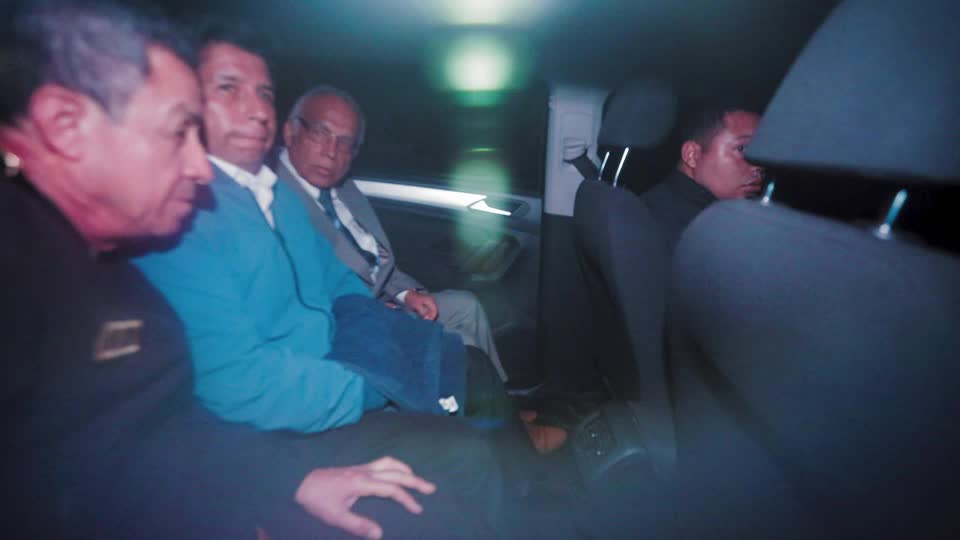


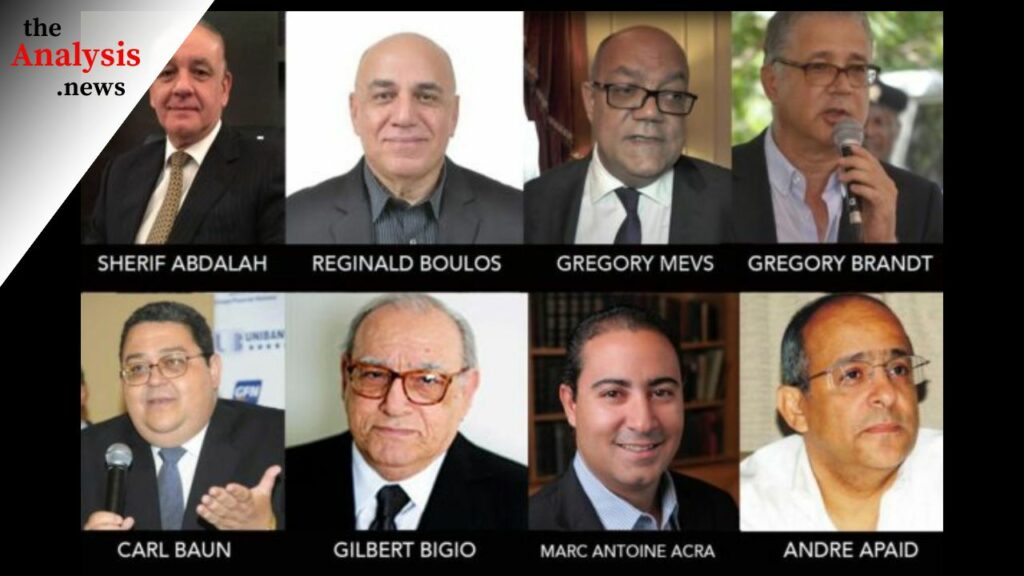
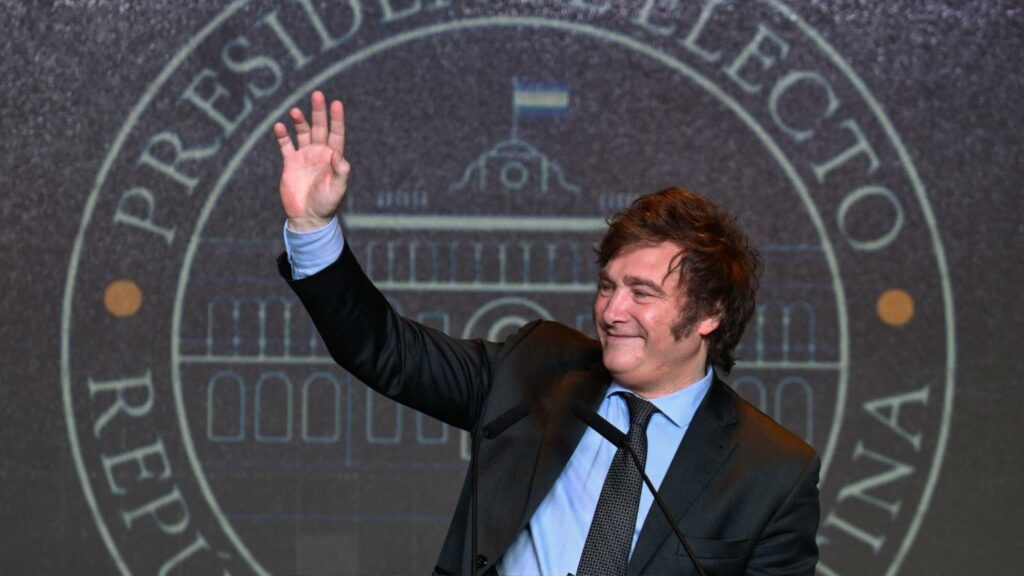
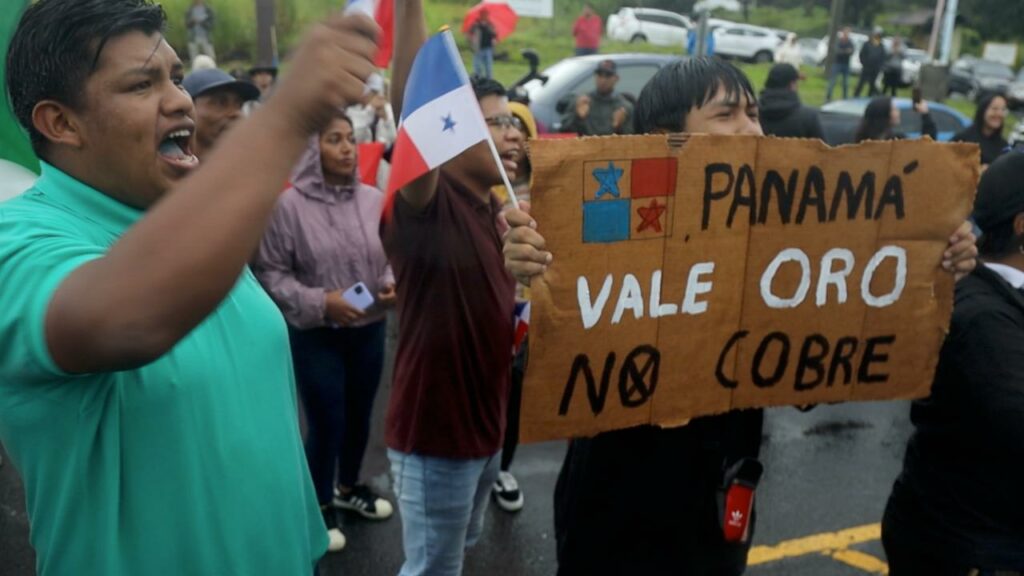
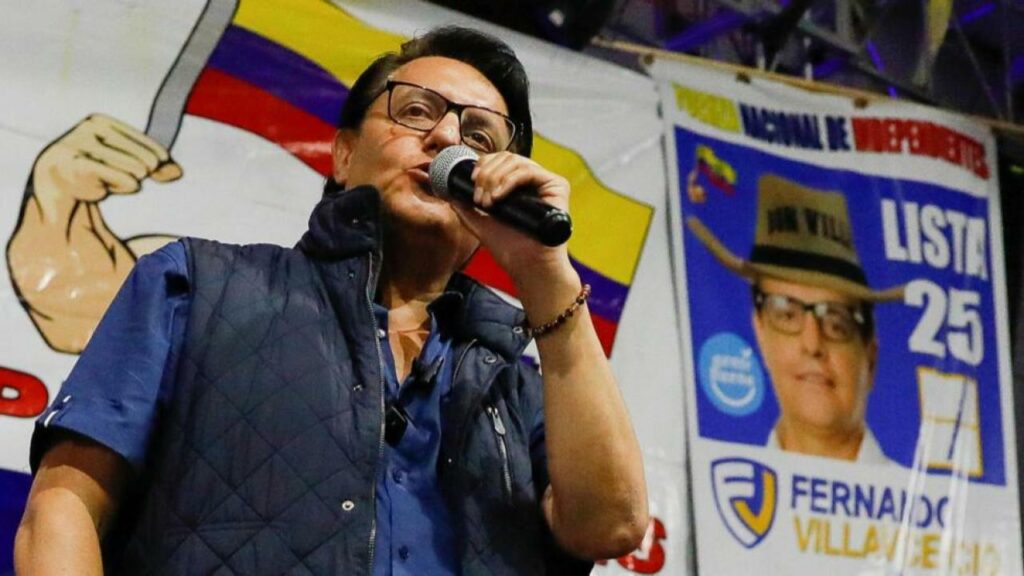
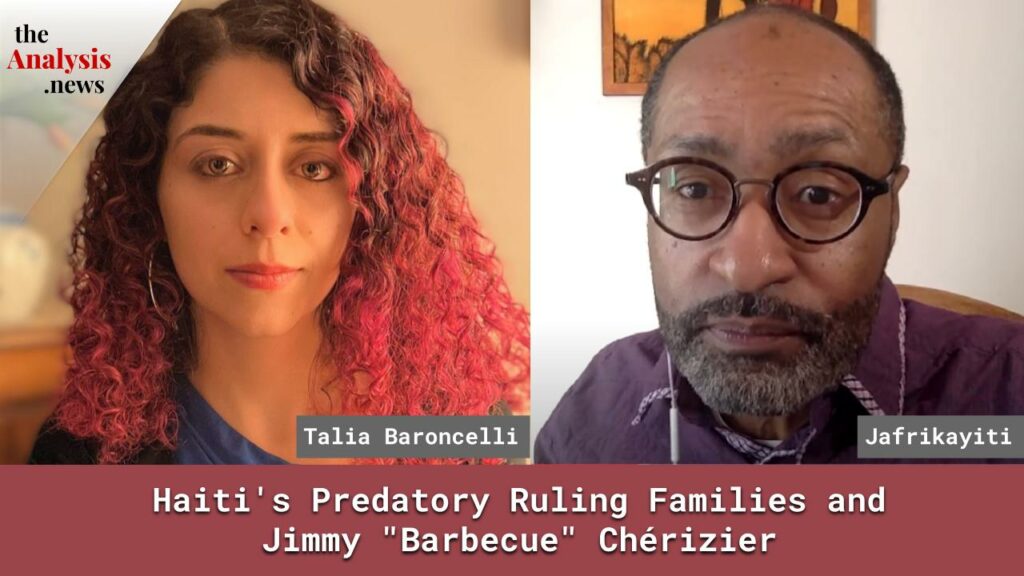
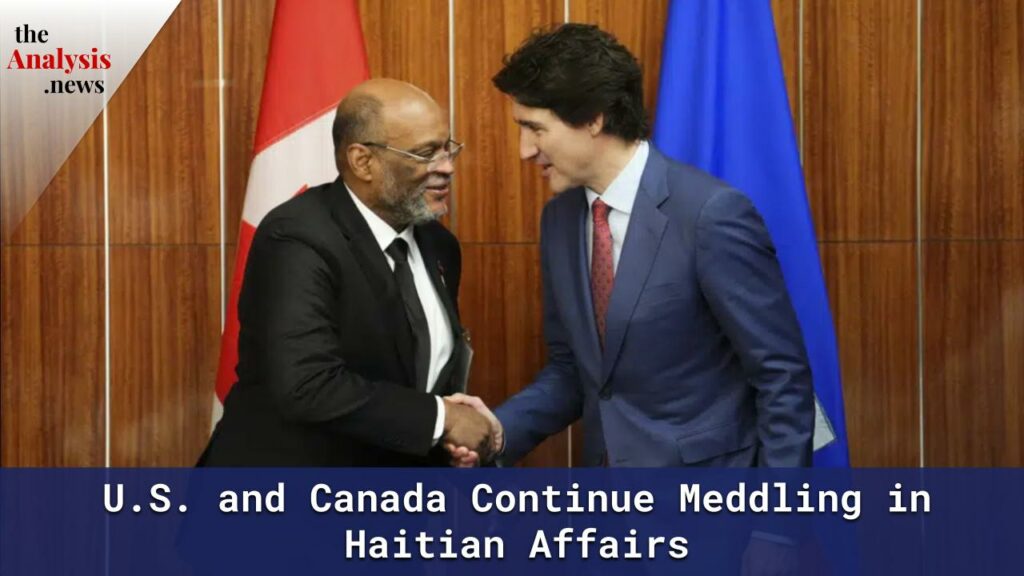
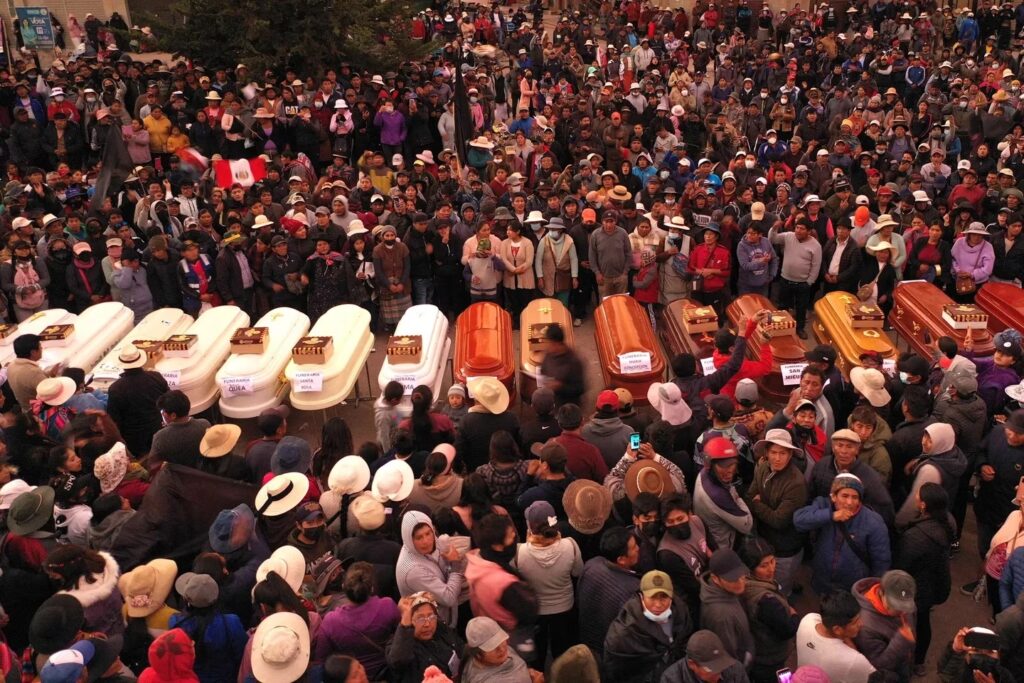
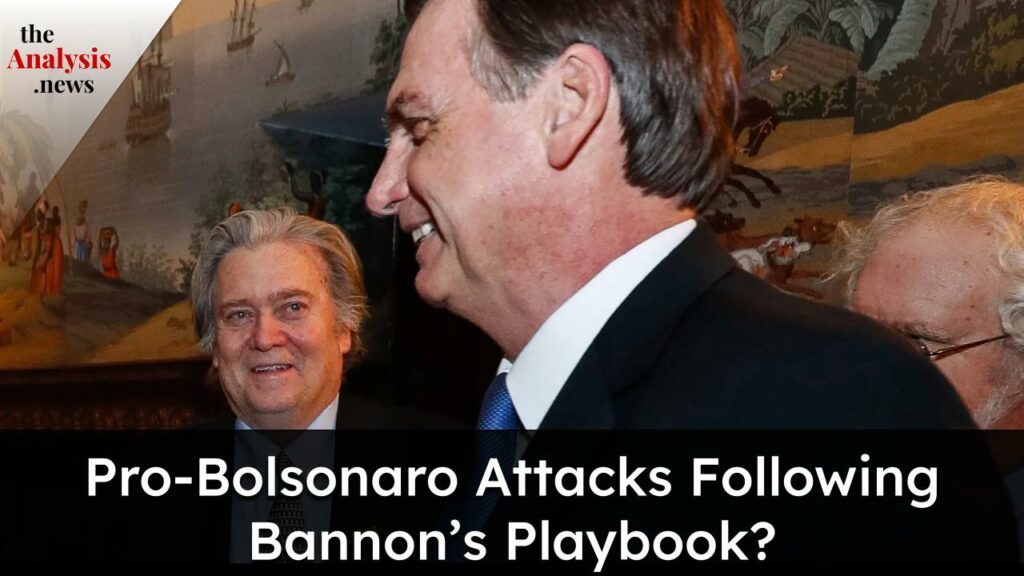
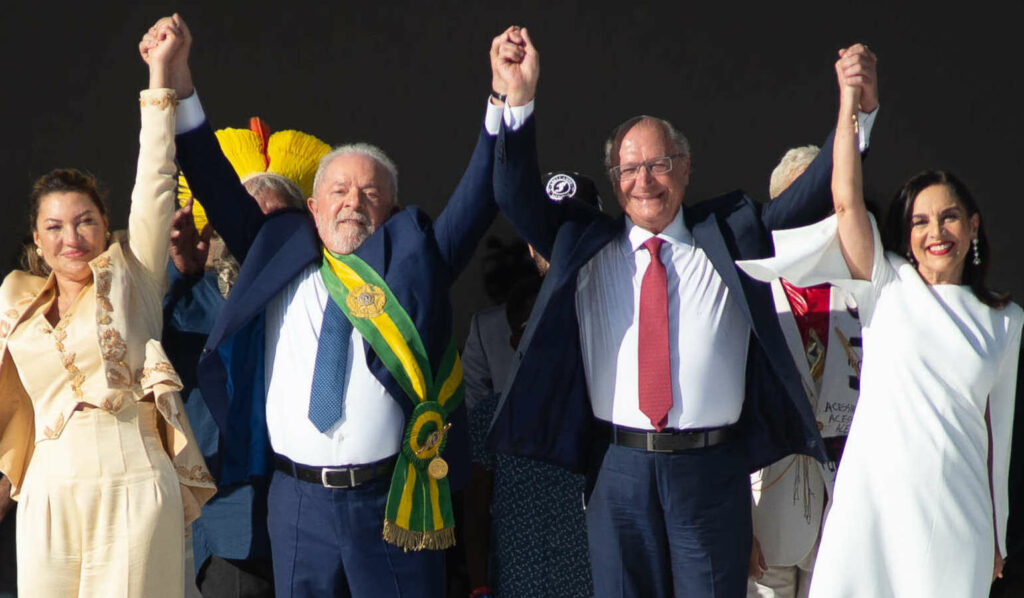
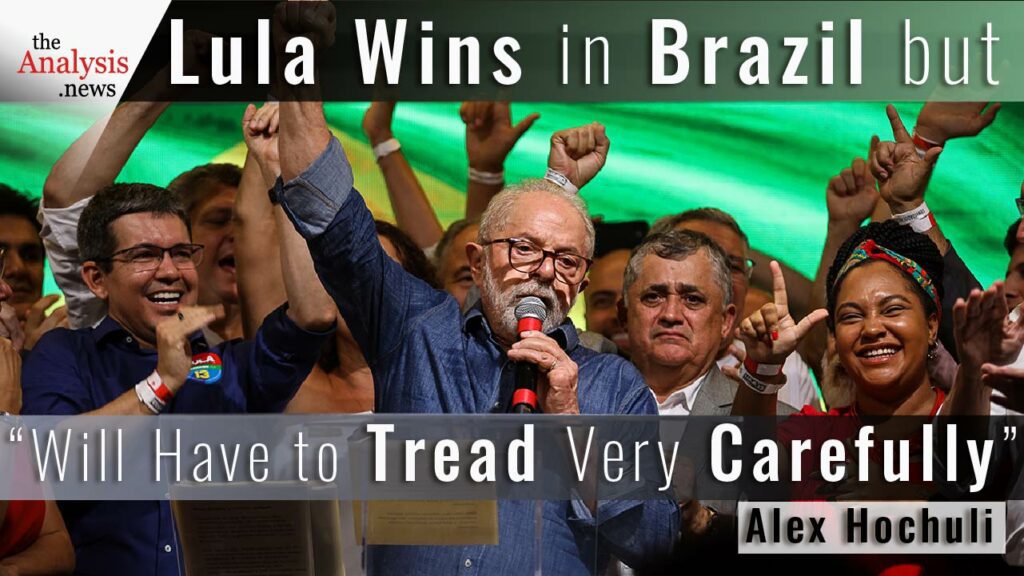
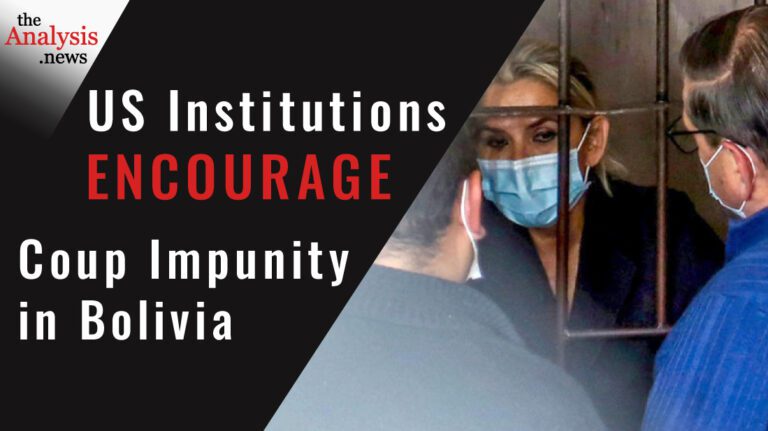

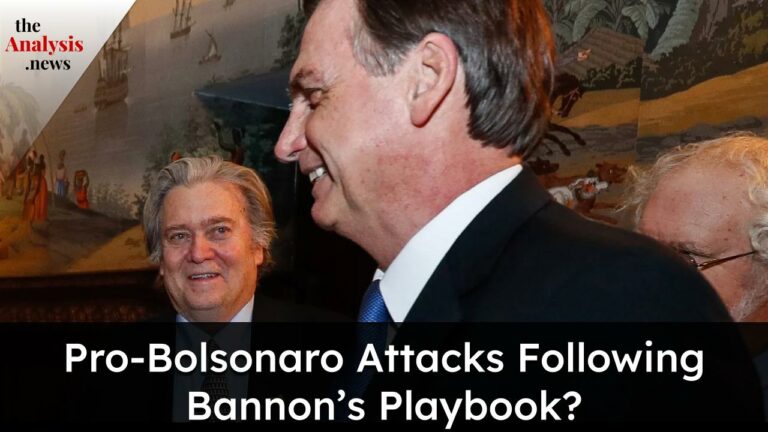
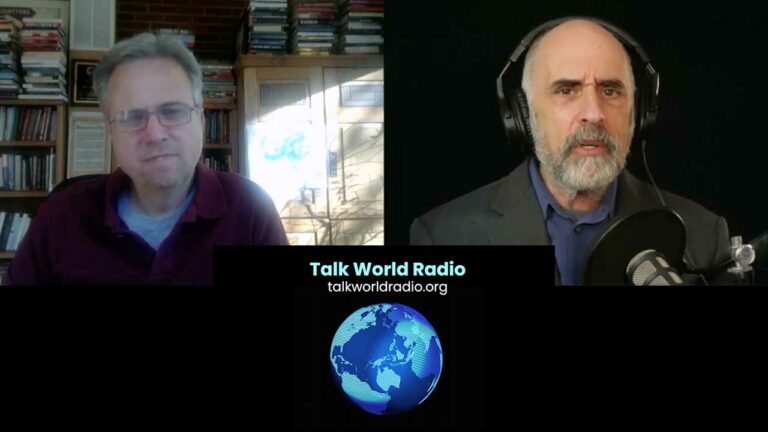
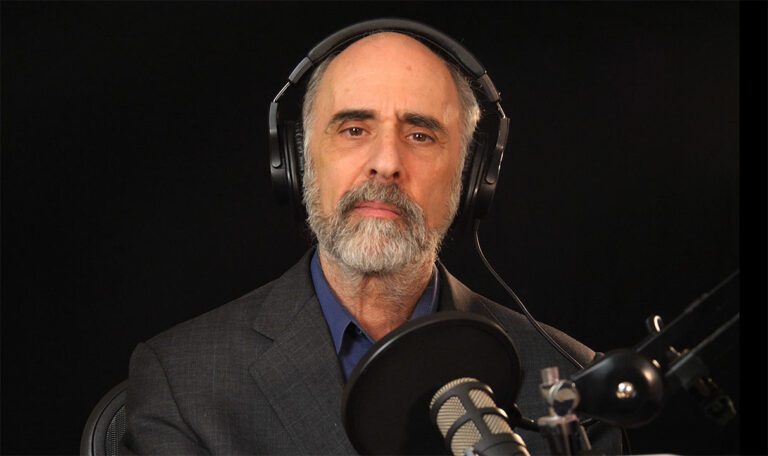
Thank you for the update on what’s happening in Peru. As an ex- US pat living in Chile, this is a very worrying situation for our neighbor, and for the push to the left in South America. (Also, what’s happened to Christina Kushner in Argentina). Because Castillo didn’t embrace the left and his own policies that he ran on, it’s no wonder he didn’t have the support he desperately needed from the left. If one doesn’t have political experience it’s all the more reason to bring into one’s government those who do support your platform. This is especially important in a country that hasn’t ever had a left-leaning government in power. I wish that you had finished the conversation about how involved the US was in all of this- if we even know at this point. The CIA and the use of mainstream media, including social media like Facebook, I have no doubt that they have been instrumental in pushing right-wing propaganda, which happened here in Chile during our election for president and the vote to approve the new constitutional draft which went down to defeat. They are always involved in pushing out left-leaning/socialist governments. We’ll know soon enough when the far right pushes ahead to take back control of the government. I’m so sorry for the people of Peru who are trying to bring Democracy to their country. Sadly, the failing US imperialist and their captured countries of Canada and Europe will continue to ramp up their interference of sovereign countries. I still have hope that the push to the left that is happening in South America will grow and stabilize to push them out. We’ll see more of this as Lula de Silva becomes president of Brazil. My best to the people of Peru.